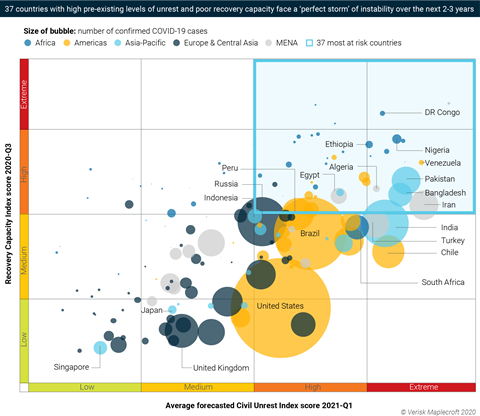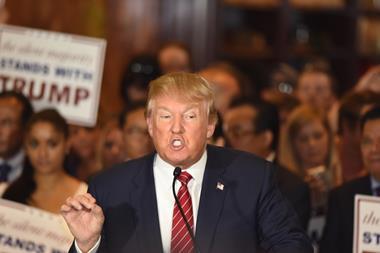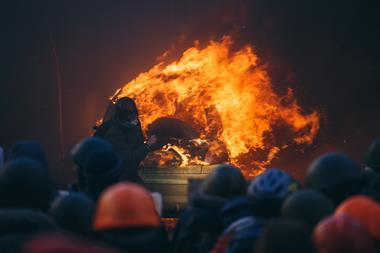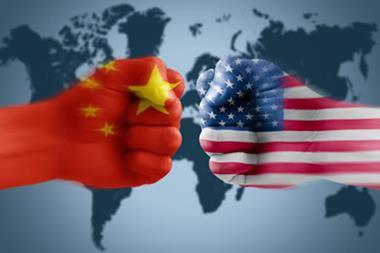The outlook is also negative for the US, which is now the 48th riskiest jurisdiction globally - Verisk Maplecroft
As the economic fallout from COVID-19 mounts, protests in emerging and frontier markets are set to swell with millions of newly unemployed, underpaid and underfed citizens, posing a risk to domestic stability with few parallels in recent decades, according to Verisk Maplecroft.
The firm identifies 37 countries that will face major spikes in unrest during the second half of this year, driven by a painful post-pandemic economic recovery that will inflame existing public anger with governments.
Economies facing a ‘perfect storm’ of risks are mostly concentrated in Africa and Latin America, including Nigeria, DR Congo, Ethiopia, Venezuela and Peru. But investors, insurers and companies in key emerging markets, such as Bangladesh, Turkey and Egypt, will also need to brace for an explosive end to the year.
The highest risk countries include Nigeria, Iran, Bangladesh, Algeria and Ethiopia, which face a ‘perfect storm’ of popular anger as protests driven by the pandemic’s economic fallout inflame unrest over pre-existing grievances.
However, several major emerging markets, including India, Brazil, Russia, South Africa, Indonesia and Turkey, sit just outside the ‘perfect storm’ category. Risks in these countries are only slightly less acute and still constitute a significant threat to stability.
While strong recovery capacity limits the level of risk, it does not eliminate it, particularly where pre-existing grievances centre around political rights or other structural issues. India remains focused on tackling an explosion of coronavirus cases, but anger over the Citizenship Amendment Act is set to resurface.
And while Hong Kong quickly suppressed the first wave of the coronavirus outbreak, anti-government protests have resumed and will continue despite the recently introduced National Security Law.
The outlook is also negative for the US, which is now the 48th riskiest jurisdiction globally after recording the second biggest drop on the company’s Civil Unrest Index between 2020-Q2 and Q3. The combination of the Black Lives Matter protests, alongside mounting frustration over job losses and President Trump’s weak pandemic response means more unrest is inevitable.





















No comments yet